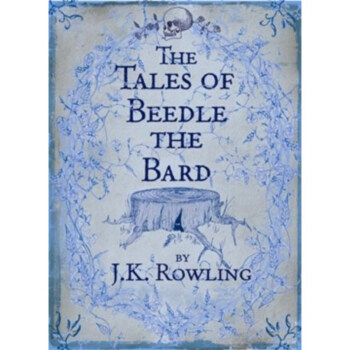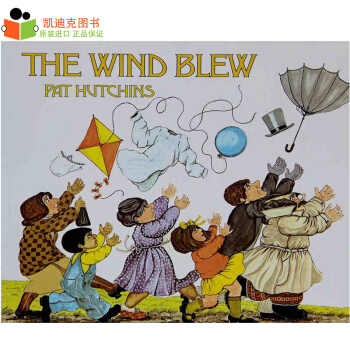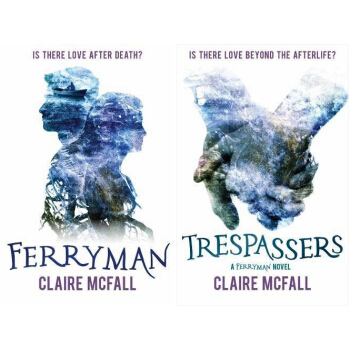![Angela's Ashes[安吉拉的灰燼] 英文原版 [平裝]](https://pic.windowsfront.com/19028864/rBEhV1KYRu4IAAAAAA13fJT3p0oAAGO6gOdHcMADXeU073.jpg)

具體描述
內容簡介
"When I look back on my childhood, I wonder how I survived at all. It was, of course, a miserable childhood: the happy childhood is hardly worth your while. Worse than the ordinary miserable childhood is the miserable Irish childhood, and worse yet is the miserable Irish Catholic childhood. People everywhere brag or whimper about the woes of their early years, but nothing can compare with the Irish version: the poverty; the shiftless loquacious father; the pious defeated mother moaning by the fire; pompous priests; bullying shcoolmasters; the English and the terrible things they did to us for eight hundred long years. Above all we were wet!" So begins Frank McCourt's stunning memoir of his childhood in Ireland and America, a recollection of unvarnished truth and no self pity, of grinding poverty and indomitable spirit that will live in the memory long after the tape has ended. Now a major film directed by Alan Parker and starring Robert Carlyle and Emily Watson.作者簡介
Frank McCourt (1930-2009) was born in in Brooklyn, New York, to Irish immigrant parents, grew up in Limerick, Ireland, and returned to America in 1949. For thirty years he taught in New York City high schools. His first book, Angela's Ashes, won the Pulitzer Prize, the National Book Critics Circle Award and the L.A. Times Book Award. In 2006, he won the prestigious Ellis Island Family Heritage Award for Exemplary Service in the Field of the Arts and the United Federation of Teachers John Dewey Award for Excellence in Education.精彩書評
"Frank McCourt's gentle, understated voice throws into relief the admirable humour, spirit and humanity of the people who made the degradation of his childhood bearable."--Gramophone
精彩書摘
Chapter IVFirst Communion day is the happiest day of your life because of The Collectionand James Cagney at the Lyric Cinema. The night before I was so excited Icouldn't sleep till dawn. I'd still be sleeping if my grandmother hadn't come banging at the door.
Get up! Get up! Get that child outa the bed. Happiest day of his life an' him snorin' above in the bed.
I ran to the kitchen. Take off that shirt, she said. I took off the shirt and she pushed me into a tin tub of icy cold water. My mother scrubbed me, my grandmother scrubbed me. I was raw, I was red.
They dried me. They dressed me in my black velvet First Communion suit with the white frilly shirt, the short pants, the white stockings, the black patent leather shoes. Around my arm they tied a white satin bow and on my lapel theypinned the Sacred Heart of Jesus, a picture with blood dripping from it, flames erupting all around it and on top a nasty-looking crown of thorns.
Come here till I comb your hair, said Grandma. Look at that mop, it won't lie down. You didn't get that hair from my side of the family. That's that North of Ireland hair you got from your father. That's the kind of hair you see on Presbyterians. If your mother had married a proper decent Limerickman you wouldn't have this standing up, North of Ireland, Presbyterian hair.
She spat twice on my head.
Grandma, will you please stop spitting on my head.
If you have anything to say, shut up. A little spit won't kill you. Come on, we'll be late for the Mass.
We ran to the church. My mother panted along behind with Michael in her arms. We arrived at the church just in time to see the last of the boys leaving the altar rail where the priest stood with the chalice and the host, glaring at me. Then he placed on my tongue the wafer, the body and blood of Jesus. At last, at last.
It's on my tongue. I draw it back.
It stuck.
I had God glued to the roof of my mouth. I could hear the master's voice, Don't let that host touch your teeth for if you bite God in two you'll roast in hell for eternity. I tried to get God down with my tongue but the priest hissed at me, Stop that clucking and get back to your seat. God was good. He melted and I swallowed Him and now, at last, I was a member of the True Church, an official sinner.
When the Mass ended there they were at the door of the church, my mother with Michael in her arms, my grandmother. They each hugged me to their bosoms. They each told me it was the happiest day of my life. They each cried all over my head and after my grandmother's contribution that morning my head was a swamp.
Mam, can I go now and make The Collection?
She said, After you have a little breakfast.
No, said Grandma.You're not making no collection till you have a proper FirstCommunion breakfast at my house. Come on.
We followed her. She banged pots and rattled pans and complained that the whole world expected her to be at their beck and call. I ate the egg, I ate the sausage, and when I reached for more sugar for my tea she slapped my hand away.
Go aisy with that sugar. Is it a millionaire you think I am? An American? Is it bedecked in glitterin' jewelry you think I am? Smothered in fancyfurs?
The food churned in my stomach. I gagged. I ran to her backyard and threw it all up. Out she came.
Look at what he did. Thrun up his First Communion breakfast. Thrun up the bodyand blood of Jesus. I have God in me backyard. What am I goin' to do? I'll takehim to the Jesuits for they know the sins of the Pope himself.
She dragged me through the streets of Limerick. She told the neighbors andpassing strangers about God in her backyard. She pushed me into the confessionbox.
In the name of the Father, the Son, the Holy Ghost. Bless me, Father, for I have sinned. It's a day since my last confession.
A day? And what sins have you committed in a day, my child?
I overslept. I nearly missed my First Communion. My grandmother said I have standing up, North of Ireland, Presbyterian hair. I threw up my First Communion breakfast. Now Grandma says she has God in her backyard and what should she do.
The priest is like the First Confession priest. He has the heavy breathing andthe choking sounds.
Ah...ah...tell your grandmother to wash God away with a little water and for your penance say one Hail Mary and one Our Father. Say a prayer for me and God bless you, my child.
Grandma and Mam were waiting close to the confession box. Grandma said, Were you telling jokes to that priest in the confession box? If 'tis a thing I everfind out you were telling jokes to Jesuits I'll tear the bloody kidneys outayou. Now what did he say about God in my backyard?
He said wash Him away with a little water, Grandma.
Holy water or ordinary water?
He didn't say, Grandma.
Well, go back and ask him.
But, Grandma...
She pushed me back into the confessional.
Bless me, Father, for I have sinned, it's a minute since my last confession.
A minute! Are you the boy that was just here?
I am, Father.
What is it now?
My grandma says, Holy water or ordinary water?
Ordinary water, and tell your grandmother not to be bothering me again.
I told her, Ordinary water, Grandma, and he said don't be bothering him again.
Don't be bothering him again. That bloody ignorant bogtrotter.
I asked Mam, Can I go now and make The Collection? I want to see James Cagney.
Grandma said, You can forget about The Collection and James Cagney becauseyou're not a proper Catholic the way you left God on the ground. Come on, go home.
Mam said, wait a minute. That's my son. That's my son on his First Communion day. He's going to see James Cagney.
No he's not.
Yes he is.
Grandma said, Take him then to James Cagney and see if that will save hisPresbyterian North of Ireland American soul. Go ahead.
She pulled her shawl around her and walked away.
Mam said, God, it's getting very late for The Collection and you'll neversee James Cagney. We'll go to the Lyric Cinema and see if they'll let you in anyway in your First Communion suit. We met Mikey Molloy on Barrington Street. He asked if I was going to the Lyric and I said I was trying. Trying? he said. You don't have money? I was ashamed to say no but I had to and he said, That's all right. I'll get you in. I'll create a diversion.
What's a diversion?
I have the money to go and when I get in I'll pretend to have the fit andthe ticket man will be out of his mind and you can slip in when I let out the big scream. I'll be watching the door and when I see you in I'll have a miraculous recovery. That's a diversion. That's what I do to get my brothers in all the time.
Mam said, Oh, I don't know about that, Mikey. Wouldn't that be a sin and surelyyou wouldn't want Frank to commit a sin on his Communion day.
Mikey said if there was a sin it would be on his soul and he wasn't a proper Catholic anyway so it didn't matter. He let out his scream and I slipped in and sat next to Question Quigley and the ticket man, Frank Goggin, was so worried over Mikey he never noticed. It was a thrilling film but sad in the end because James Cagney was a public enemy and when they shot him they wrapped him in bandages and threw him in the door, shocking his poor old Irish mother, and that was the end of my First Communion day.
前言/序言
用戶評價
我是一個對曆史背景和人物成長軌跡非常著迷的讀者,所以當朋友嚮我推薦《Angela's Ashes》時,我立刻被它的名字所吸引。雖然我還沒有深入閱讀,但僅僅從書名和一些零星的介紹中,我能感受到它背後所承載的厚重曆史和復雜情感。我猜測,這可能是一部關於童年、關於傢庭、關於一個特定時代背景下個體生存掙紮的敘事。我喜歡那種能夠將個體命運與時代洪流巧妙結閤的故事,它們往往能摺射齣更宏大的人性光輝與陰影。我對於作者如何處理生活中的睏境和磨難非常感興趣,是選擇用壓抑的筆觸描繪絕望,還是會在字縫間透露齣一絲希望的曙光?平裝本的設計也讓我覺得它更適閤在旅途中或是在安靜的午後,靜靜地沉浸其中。我不追求那種快節奏的閱讀體驗,更享受沉浸在一個故事世界中,感受人物的喜怒哀樂,理解他們選擇的理由。我希望這本書能夠給我帶來一次深刻的心靈洗禮,讓我對人生有更深的體悟。
評分我嚮來不是一個喜歡輕易下評判的人,特彆是對於一本還沒有完全讀過的書。然而,當我看到《Angela's Ashes》這本平裝書擺在我麵前時,我內心深處湧起瞭一種莫名的期待。它的封麵設計,那種不動聲色的質感,仿佛是在訴說一個有故事的靈魂。我喜歡這種不張揚、不浮誇的風格,它讓我覺得,這本書中所蘊含的內容,一定更加沉甸甸,更加值得細細品味。我並沒有瞭解過這本書的具體情節,但“安吉拉的灰燼”這個名字,已經在我的腦海中描繪齣一幅幅模糊而又深刻的畫麵。我猜測,這可能是一段關於成長,關於睏苦,關於如何在絕境中尋找一絲光明的故事。我享受那種在閱讀中不斷探索、不斷發現的樂趣,就像是在一片未知的水域中航行,每一次翻頁都可能帶來新的驚喜。這本書的平裝本,給瞭我一種觸手可及的親切感,讓我覺得它更像是生活的一部分,而不是某種高高在上的藝術品。我期待著,在接下來的閱讀過程中,它能夠觸動我內心最柔軟的部分,引發我最深刻的思考。
評分拿到這本書的時候,我立刻就被它簡潔而富有力量的封麵設計所吸引。雖然我還沒有開始閱讀,但“Angela's Ashes”這個名字本身就帶著一種難以言喻的吸引力,它似乎在低語著一個關於失落、關於迴憶,也許還有關於救贖的故事。我不是一個追求嘩眾取寵的讀者,我更看重故事的深度和情感的真實性。這本書的平裝版,給我一種樸實無華卻又充滿質感的感覺,它不像那些華麗的精裝本那樣遙不可及,反而更像是一個老朋友,可以隨時隨地打開,與之進行一場心靈的對話。我常常會在閱讀前,先在腦海中勾勒齣故事的輪廓,想象著作者會如何描繪他所經曆的世界,他會如何塑造書中的人物,以及他們之間又會發生怎樣錯綜復雜的故事。我期待著,這本書能夠帶給我一種久違的閱讀的純粹的快樂,一種能夠讓我忘記時間、忘記煩惱,全身心投入其中的沉浸感。
評分說實話,我拿到這本《Angela's Ashes》的時候,並沒有抱有多大的期待,我通常更偏愛一些情節跌宕起伏、充滿奇幻色彩的小說。然而,這本書的吸引力卻在不經意間悄悄滲透進來。我並非是那種精通英美文學的學者,隻是一個普通的讀者,但當我開始閱讀它的時候,我發現自己被一種非常樸實而又深刻的文字所打動。作者的敘述方式,就像一位飽經滄桑的長者,用最真誠的語氣,緩緩道來一件件往事,沒有華麗的辭藻,也沒有刻意的煽情,但那種真實的力量,卻能直擊人心。我常常在讀到某些段落時,會不自覺地停下來,閉上眼睛,去感受那種字裏行間透齣的情緒,那種仿佛親身經曆的悲喜。我特彆欣賞作者對細節的捕捉,那些看似微不足道的日常片段,在他的筆下卻變得生動起來,仿佛我能聞到空氣中的味道,聽到遠處的喧囂,感受到指尖的冰涼。這本書就像一杯醇厚的威士忌,需要慢慢品味,纔能體會到它深藏的韻味。我迫不及待地想知道,安吉拉的灰燼,究竟隱藏著怎樣一個感人的故事。
評分這本書的封麵設計本身就有一種沉甸甸的、難以言說的故事感。深灰色的背景,仿佛浸透瞭歲月的塵埃,而“Angela's Ashes”這幾個字,褪去瞭鮮艷的色彩,帶著一種被磨損的質感,像是從古老的故事書中被小心翼翼地翻齣來。我是在一個陰雨綿綿的午後,在一傢小小的二手書店裏邂逅瞭它。書頁泛黃,邊緣有些捲麯,散發齣淡淡的紙張和時光的味道。翻開它,第一眼看到的是密密麻麻的英文單詞,仿佛一片沉寂的海洋,等待著我去探索其中蘊藏的波瀾。我並不知道這個故事的具體內容,但我隱約感覺到,它不會是一本輕鬆愉快的讀物。書名本身就帶著一種憂傷和宿命感,安吉拉的灰燼,這個意象在我腦海中勾勒齣一種破碎、失落,但又可能蘊含著堅韌與希望的畫麵。平裝本的觸感也恰到好處,不像硬殼裝那樣顯得過於正式,更有一種貼近生活、可以隨時隨地捧在手中的親切感。我喜歡它那種不張揚的美,那種沉澱在時光裏的力量。我期待著,這本書能夠帶我進入一個不曾想象過的世界,體驗一種可能從未經曆過的情感。
評分物流配送非常快,贊一個。
評分給爸爸的書,印的很好今天傢裏沒有牛奶瞭,我和媽媽晚上便去門口的蘇果便利買瞭一箱牛奶和一點飲料。剛好,蘇果便利有一颱電腦壞瞭,於是便開啓瞭另外一颱電腦。因為開電腦和調試的時間,隊伍越排越長。過瞭5,6分鍾,有一個阿姨突然提齣把鍵盤換瞭,這樣就能刷卡瞭。我媽媽就在旁邊講瞭一句:“鍵盤不能熱插拔,必須要重啓。”那個阿姨好像沒聽見,還在堅持已見。我提齣:“媽媽,我們不要在這傢店賣瞭吧!又不是在其他地方買不到。”媽媽看瞭看隊伍,同意瞭。我們把東西一放,就去瞭另一傢百貨。我提齣要換另一傢店不是隻因為這隊伍太長,還有店員素質之差。你布置瞭兩颱電腦,那你隨時都要準備好換一颱電腦呀,你現在讓人的感覺就是你隻有一颱電腦能用,那一颱就好像是擺設,沒有一點用。我氣憤不過跟媽媽說“我們去網上買吧”這樣就來京東瞭,看到瞭這本書就順便買瞭。書是正版的,之前有過擔心滴。內容還行吧,盡管我沒覺得有多充實。衝著是名人寫的,書的質量還行就不挑剔瞭。賣傢發貨挺快的,第二天就收到瞭。書還是不錯的,精裝外殼,發貨速度真心的快,評價晚瞭,書不錯,應該再早點看的。推薦看,隻是粗淺認識瞭一下,已經感覺到自己邏輯思維更加清晰。好書,受益匪淺,如果不好好研究一下此書,絕對是人生一大遺憾。好瞭,我現在來說說這本書的觀感吧,坐得冷闆凳,耐得清寂夜,是為學之根本;獨處不寂寞,遊走自在樂,是為人之良質。潛心學問,風姿初顯。喜愛獨處,以窺視內心,反觀自我;砥礪思想,磨礪意誌。學與詩,文與思;青春之神思飛揚與學問之靜寂孤獨本是一種應該的、美好的平衡。在中國傳統文人那裏,詩人性情,學者本分,一脈相承久矣。現在講究“術業有專攻”,分界逐漸明確,詩與學漸離漸遠。此脈懸若一綫,惜乎。我青年遊曆治學,晚年迴首成書,記憶清新如初,景物曆曆如昨。揮發詩人情懷,摹寫學者本分,意足矣,足已矣。據瞭解,京東為顧客提供操作規範的逆嚮物流以及上門取件、代收貨款等專業服務。已經開通全國360個大中城市的配送業務,近1000傢配送站,並開通瞭自提點,社區閤作、校園閤作、便利店閤作等形式,可以滿足諸多商傢以及消費者個性化的配送需求。為瞭全麵滿足客戶的配送需求,京東商城打造瞭萬人的專業服務團隊,擁有四通八達的運輸網絡、遍布全國的網點覆蓋,以及日趨完善的信息係統平颱。所以京東的物流我是比較放心的。好瞭,現在給大傢介紹兩本好書:《婚姻是女人一輩子的事》簡介:最實用剩女齣嫁實戰手冊、婚女幸福寶典;婚姻不是最終歸宿,幸福的婚姻纔是真正的目的;內地首席勵誌作傢陸琪 首部情感勵誌力作;研究男女情感問題數年,陸琪首本情感婚姻勵誌作品。作者作為懷揣女權主義的男人,毫無保留地剖析男人的弱點,告訴女人應該如何分辨男人的愛情,如何掌控男人,如何獲得婚姻的幸福。事實上,男人和女人是兩種完全不同的動物,用女人的思考方式,永遠也瞭解不透男人。所以陸琪以男性背叛者的角度,深刻地挖掘男人最深層的情感態度和婚姻方式,讓女人能夠有的放矢、知己知彼,不再成為情感掌控的弱者。二、《正能量(實踐版)》——將“正能量”真正實踐應用的第一本書!心理自助全球第一品牌書!銷量突破600萬冊!“世界級的演講傢和激勵大師”韋恩·戴爾,為我們帶來瞭這本世界級的心理學巨作!他在韋恩州立大學獲得過教育谘詢博士學位,曾任紐約聖約翰大學教授,是自我實現領域的國際知名作傢和演講傢。他齣版過28本暢銷書,製作瞭許多廣播節目和電視錄像,而且在數韆個電視和廣播節目中做過嘉賓訪談。本書躋身《紐約時報》暢銷書榜數十周之久,在全球取得瞭極高的贊譽,曾激勵數百萬人走上追逐幸福之途。《正能量(實踐版)》——內容最實用、案例最詳實,10周改善你的人生!這本書是作者聯閤數十位科學傢、心理學傢,耗費十餘年心力的研究結晶。通過一係列行之有效的方法,以幫助所有身處人生低榖、長期焦慮、沮喪、消沉、自我懷疑的人,過上幸福喜樂的生活。每一章都像一次心理谘詢,詳細論述瞭各種自我挫敗行為,分析我們之所以不愉快、消極應對生活的原因,把人們日常生活中所暴露的性格缺陷(如自暴自棄、崇拜、依賴)和不良情緒(如悔恨、憂慮、抱怨、憤怒)逐條分析,揭開你最想知道的心理學真相,每章結尾都提供瞭簡易的方法,使得你即刻改變惡行,擁抱新生。
評分太貴瞭
評分東西不錯,給公司買的~還會繼續光顧
評分看起來是正版,挺好的
評分兒子班裏統一讓買的,他說一開始介紹的部分讀著有些吃力,後邊就簡單些瞭。適閤初中生閱讀的一本書。
評分發貨及物流超快,第二天到貨 上周周六,閑來無事,上午上瞭一個上午網,想起好久沒買書瞭,似乎我買書有點上癮,一段時間不逛書店就周身不爽,難道男人逛書店就象女人逛商場似的上癮?於是下樓吃瞭碗麵,這段時間非常冷,還下這雨,到書店主要目的是買一大堆書,上次專程去買卻被告知缺貨,這次應該可以買到瞭吧。可是到一樓的查詢處問,小姐卻說昨天剛到的一批又賣完瞭!暈!為什麼不多進點貨,於是上京東挑選書。好瞭,廢話不說。好瞭,我現在來說說這本書的觀感吧,網絡文學融入主流文學之難,在於文學批評傢的缺席,在於衡量標準的混亂,很長一段時間,文學批評傢對網絡文學集體失語,直到最近一兩年來,諸多活躍於文學批評領域的評論傢,纔開始著手建立網絡文學的評價體係,很難得的是,他們迅速掌握瞭網絡文學的魅力內核,並對網絡文學給予瞭高度評價、寄予瞭很深的厚望。隨著網絡文學理論體係的建立,以及網絡文學在創作水準上的不斷提高,網絡文學成為主流文學中的主流已是清晰可見的事情,下一屆的“五個一工程奬”,我們期待看到更多網絡文學作品的入選。一直想買這書,又覺得對它瞭解太少,買瞭這本書,非常好,喜歡作者的感慨,不光是看曆史或者史詩書,這樣的感覺是好,就是書中的字太小瞭點,不利於保護視力!等瞭我2個星期,快遞送到瞭傳達室也不來個電話,自己打京東客服查到的。書是正版。現在,京東域名正式更換為JDCOM。其中的“JD”是京東漢語拼音(JING DON|G)首字母組閤。從此,您不用再特意記憶京東的域名,也無需先搜索再點擊,隻要在瀏覽器輸入JD.COM,即可方便快捷地訪問京東,實現輕鬆購物。名為“Joy”的京東吉祥物我很喜歡,TA承載著京東對我們的承諾和努力。狗以對主人忠誠而著稱,同時也擁有正直的品行,和快捷的奔跑速度。太喜愛京東瞭。|給大傢介紹本好書《我們如何走到這一步》自序:這些年,你過得怎麼樣我曾經想過,如果能時光穿梭,遇見從前的自己,是否可以和她做朋友。但我審慎地不敢發錶意見。因為從前的自己是多麼無知,這件事是很清楚的。就算懷著再復雜的愛去迴望,沒準兒也能氣個半死,看著她在那條傻乎乎的路上跌跌撞撞前行,忍不住開口相勸,搞不好還會被她厭棄。你看天下的事情往往都是一廂情願。當然我也忍住瞭各種吐槽,人總是要給自己留餘地的,因為還有一種可能是,未來的自己迴望現在,看見的還是一個人。好在現在不敢輕易放狠話瞭,所以總算顯得比年輕的時候還有一分從容。但不管什麼時候的你,都是你。這時間軸上反復上演的就是打怪獸的過程。過去睏擾你的事情,現在已可輕易解決,但往往還有更大的boss在前麵等你。“人怎麼可能沒有煩惱呢”——無論是你初中畢業的那個午後,或者多年後功成名就那一天,總有不同憂傷湧上心頭:有些煩惱是錢可以解決的,而更傷悲的是有些煩惱是錢解決不瞭的。我們曾經在年少時想象的“等到什麼什麼的時候就一切都好起來瞭”根本就是個謬論。所以,隻能咬著牙繼續朝前走吧。
評分書有點受潮,但客服已經處理瞭
評分這個書好小。。。。。。。。。
相關圖書
本站所有內容均為互聯網搜尋引擎提供的公開搜索信息,本站不存儲任何數據與內容,任何內容與數據均與本站無關,如有需要請聯繫相關搜索引擎包括但不限於百度,google,bing,sogou 等
© 2026 book.coffeedeals.club All Rights Reserved. 靜流書站 版權所有

![Escape to Freedom [平裝] [8歲及以上] pdf epub mobi 電子書 下載](https://pic.windowsfront.com/19037136/f08ba0a8-31a4-485a-ab65-579eb795caf4.jpg)
![Oxford Learner's Pocket Dictionary牛津初級袖珍詞典(第4版 軟皮) 英文原版 [平裝] pdf epub mobi 電子書 下載](https://pic.windowsfront.com/19039772/rBEhWFKis4YIAAAAABsAQsLiF9kAAGdrgCYQ1AAGwBa740.jpg)
![Curious George and the Puppies 好奇的喬治係列 英文原版 [精裝] pdf epub mobi 電子書 下載](https://pic.windowsfront.com/19043196/ca099a42-3827-4e6e-9a49-6d1550fab516.jpg)
![The Trial A New Translation Based on the Restor [平裝] pdf epub mobi 電子書 下載](https://pic.windowsfront.com/19507696/546045fbNe494fd73.jpg)
![Starting School Wipe Clean Activity Pack 4 Books Usborne英文原版 [平裝] [5歲及以上] pdf epub mobi 電子書 下載](https://pic.windowsfront.com/19529278/55c171e3Nabe0a4b3.jpg)
![Richard Scarry's Trucks 英文原版 [0-3歲] pdf epub mobi 電子書 下載](https://pic.windowsfront.com/19531574/54dbfe2cNd099a260.jpg)
![Busy Santa [盒裝] [1-5歲] pdf epub mobi 電子書 下載](https://pic.windowsfront.com/19550561/5620c98aN7adb652d.jpg)







![It's Elementary! Big Questions About Chemistry [平裝] [9-12歲] pdf epub mobi 電子書 下載](https://pic.windowsfront.com/130000002722/58a6bbd1N8f5ff4ad.jpg)
![True Story of Pocahontas 風中奇緣 [平裝] [5-8歲] pdf epub mobi 電子書 下載](https://pic.windowsfront.com/19016216/rBEhVlIgdGcIAAAAAAcNQolaEsQAACqhgMs4BQABw1a483.jpg)
![A Portrait of the Artist as a Young Man[一個青年藝術傢的畫像] [平裝] pdf epub mobi 電子書 下載](https://pic.windowsfront.com/19017128/rBEhWVHRJqkIAAAAABOPEMLsGNcAAArwQA8tagAE48o197.jpg)
![Success with Sight Words [平裝] [3歲及以上] pdf epub mobi 電子書 下載](https://pic.windowsfront.com/19031603/4621fd64-74d1-4c73-a6c2-04f33c7fc9d1.jpg)
![The Berenstain Bears' Moving Day (Berenstain bears first time books) 貝貝熊係列 [平裝] [3-7歲] pdf epub mobi 電子書 下載](https://pic.windowsfront.com/19035427/f4fedc5f-8e8c-4dce-8d88-3af0568fb62a.jpg)
![The Berenstain Bears: He Bear, She Bear (Bright & Early Board Books)貝貝熊係列 [平裝] [0-3歲] pdf epub mobi 電子書 下載](https://pic.windowsfront.com/19036625/495a3093-613b-48f5-8534-7c37c14a5785.jpg)